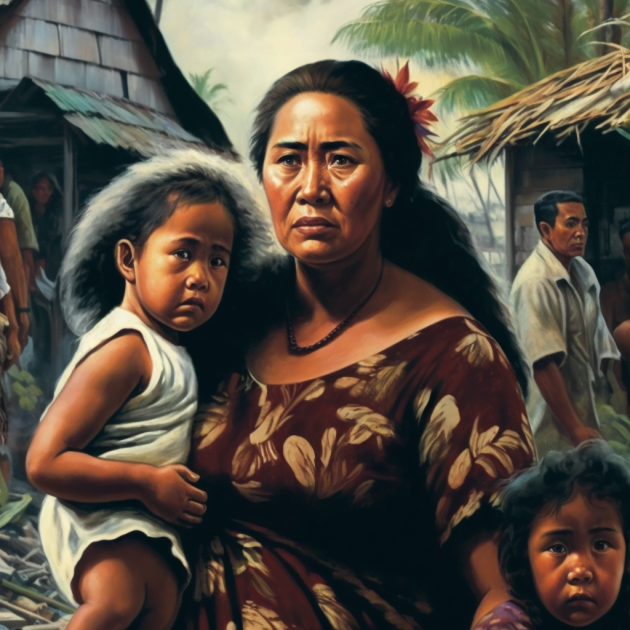The recent article published by the Samoa Observer sheds light on the controversial issue of banishment in Samoa. The article reported on a banished man who is seeking answers for why he and his family were exiled from his village. This case is just one of many that have been reported in the news with victims questioning the fairness and validity of the banishment process.
A banishment is a traditional form of punishment in Samoa that involves the exile of an individual or family from their village. It can serve as a deterrent against behaviour that is considered harmful or disruptive to the community. This can include actions such as theft, adultery, and disrespect towards cultural customs and traditions. By imposing a severe punishment such as banishment, the community can send a strong message that such behaviour will not be tolerated.
Banishment can also provide an opportunity for individuals to reflect on their actions and make amends for their behaviour. The period of exile can be used to seek forgiveness from the community and engage in personal growth and development. In some cases, the individual may even return to the community with a greater understanding and appreciation for the values and customs of their culture.
While this practice has been a part of Samoan culture for centuries, and it is deeply ingrained in the fabric of Samoan society, there are concerns about how far the punishment of banishment should go.
In some cases, individuals have been banished for relatively minor offences, such as gossiping or breaking social norms. In the most recent case, it is a land-related matter which does not seem like an offence where you send someone to prison. In these cases, the punishment of banishment may be seen as excessive and unfair and can have serious social and economic consequences for the individual and their family. One of the main concerns is that it can be a harsh and unforgiving punishment that can lead to social isolation and economic hardship for those who are banished. This can create a cycle of poverty and disadvantage that can be difficult to break.
Furthermore, there is a risk that the punishment of banishment can be abused, and used as a means of settling personal or political disputes. This can result in individuals being banished unfairly or without due process and can have severe consequences for their lives and livelihoods.
In many cases, those banished are often left with few options for recourse or appeal. The process of banishment is often determined by chiefs and matais, who may have their own biases or personal agendas that can influence their decision-making. It is also another way of maintaining their power and authority within the village council. This can lead to individuals being unfairly targeted or punished for actions that may not warrant such a severe punishment.
Furthermore, the practice of banishment in Samoa can perpetuate social inequalities and reinforce traditional power structures. But its severe consequences fall upon those who are being exiled from their own homes and villages. Some are kicked out without access to resources such as food, shelter, and healthcare, and may experience social isolation and economic hardship. In some cases, banishment can even lead to mental health issues such as depression and anxiety.
It is important to acknowledge the value of cultural traditions and customs, but it is equally important to ensure that these practices align with contemporary values and principles of justice and fairness. Banishment should be reserved for crimes that are considered severe, such as murder or other violent offences. There should be a system in place to ensure that the process of banishment is fair and transparent. This would include having clear guidelines and protocols for issuing banishments and providing individuals with the opportunity to appeal their punishment.
This is indeed a complex issue with only the village matais can contribute to decision making. While it can serve as a means of maintaining social order and promoting personal growth and development, it can also lead to social isolation, and economic hardship, and perpetuate social inequalities. As Samoa continues to evolve and modernize, it is important to critically examine traditional practices such as banishment and consider alternative forms of justice prioritising the well-being and healing of individuals and communities.





